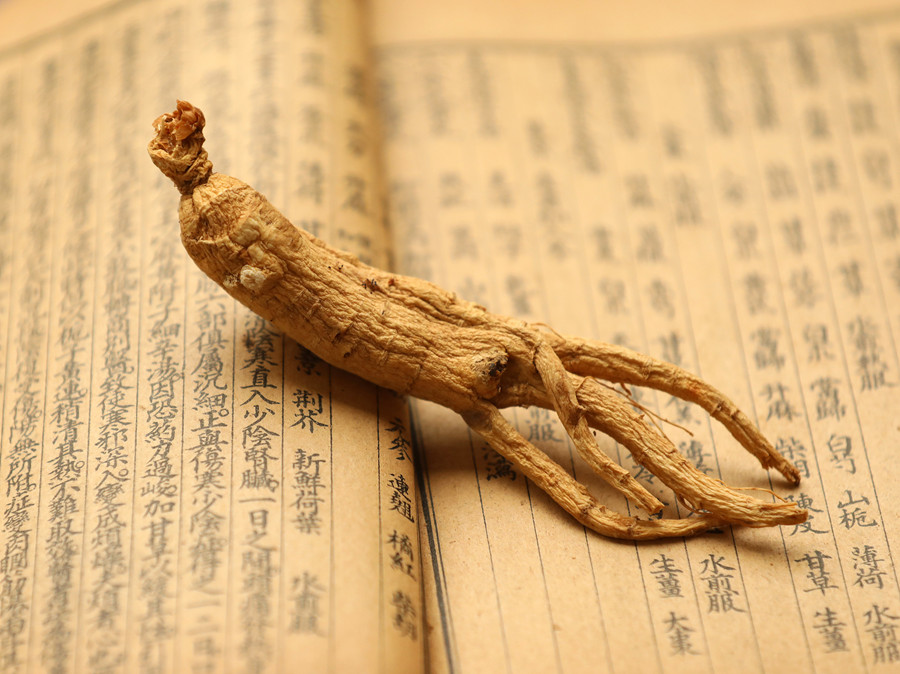Nine common English words borrowed from Chinese
English has long expanded its vocabulary by adopting so-called "loan words (外来词, wài lái cí)" from other languages.
Among these, only a small number of words originate from Chinese. While they come from various regions of the country, most of these Chinese-originated words have a pronunciation that is heavily influenced by Cantonese and Hokkien (粤语和闽南语, yuè yǔ hé mǐn nán yǔ), largely due to the maritime trade between port cities in Guangdong and Fujian provinces starting in the Tang Dynasty (618-907). These words later reached Western countries around the early 1970s.
Here are nine commonly used English words rooted in the Chinese language:
Cheongsam (旗袍, qí páo)

Cheongsam, the Cantonese word for qipao, refers to a type of tight-fitting dress with distinctive features of Manchu origin that was popularized by Chinese socialites and upper-class women in Shanghai.
Feng Shui (风水, fēng shuǐ)
Feng shui, also known as Chinese geomancy, harmonize individuals with their surrounding environment through energy forces. The term literally translates as "wind-water" in English and was first introduced to Western countries in 1757.
Ginseng (人参, rén shēn)

Ginseng is a herbal root widely used in traditional Chinese medicine (中药, zhōng yào) that is known to have many health benefits, including boosting circulation and lowering cholesterol (降低胆固醇, jiàng dī dǎn gù chún). The word comes from the Hokkien dialect and literally means "person-shaped root", referring to the way that the herb resembles the legs of a person.
Ketchup (番茄酱, fān qié jiàng)
In the 17th century, people in Fujian province created a sauce by mixing pickled fish with spices and called it kôe-chiap in their dialect (方言, fāng yán), referring to a fermented fish and spice sauce. By the early 18th century, the sauce had spread to some areas of present-day Malaysia and Singapore, where English colonists got their first taste. Although modern ketchup bears little resemblance to the original spiced pickled fish sauce, the name "ketchup" has been retained in the English language.
Kowtow (磕头, kē tóu)
Literally meaning "knock head", the act of kowtow is a way of bowing and touching the forehead to the ground, which was common in ancient China as a way to show respect for emperors or higher-ranked officials. Nowadays, the custom is rarely observed except during specific festive occasions for the elderly or to honor deceased ancestors. However, the word "kowtow" has endured in the English language and is used as a synonym for "to grovel, prostrate oneself, or behave in a subservient manner (卑躬屈膝, bēi gōng qū xī)".
Long time no see (好久不见, hǎo jiǔ bù jiàn)
Literally translated from Chinese expression 好久不见, "long time no see" is as widely used in English as it is in Chinese. The phrase "long time no see" first appeared in print in the Oxford English Dictionary in 1901.
Silk (丝绸, sī chóu)
Silk, known as sichou in standard Mandarin (标准普通话, biāo zhǔn pǔ tōng huà), was first used to make clothing around 8,500 years ago in ancient China. The word entered Western culture through smugglers who took silkworms out of China and introduced them to the rest of the world.
Typhoon (台风, tái fēng)
The Oxford English Dictionary cites Cantonese tai fung as one of the early forms of the word “typhoon” in English, with the spelling also influenced by older Urdu-derived terms. The first character is actually a simplification of the traditional Chinese character 颱, which means "strong wind".
Zen (禅, chán)

Zen is a distinct school of Chinese Buddhism (中国佛教, zhōng guó fó jiào) that originated in China during the Tang Dynasty (618-907). It later developed into various schools of thought and spread to other Asian countries, including Vietnam and Japan. The term "zen" is derived from the Japanese pronunciation of the Chinese character 禅.
Source: The Beijinger
For any concerns regarding copyright infringement, please reach out to us at intlservices@shanghai.gov.cn.

